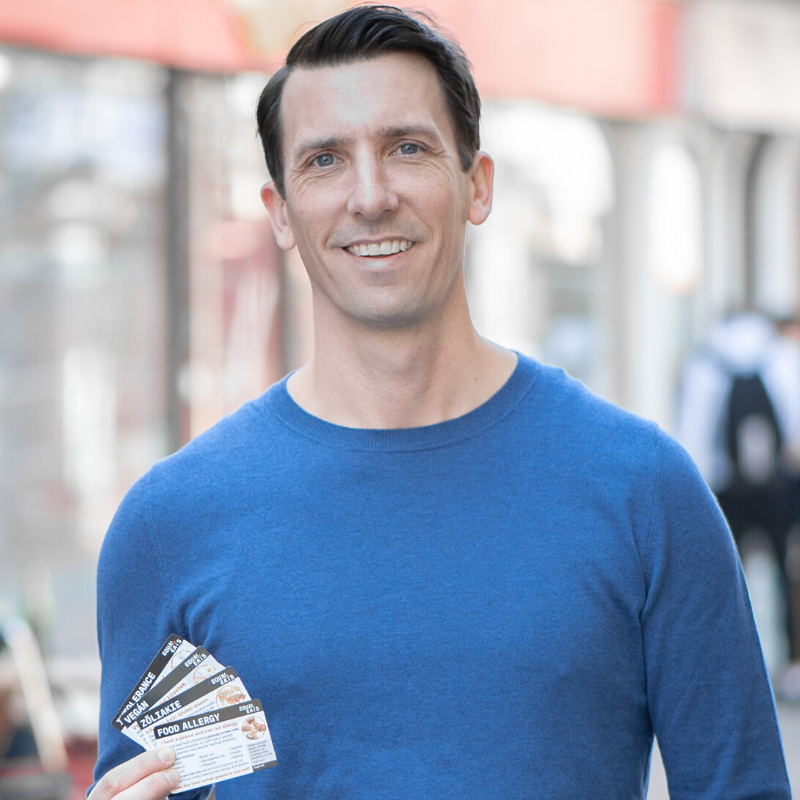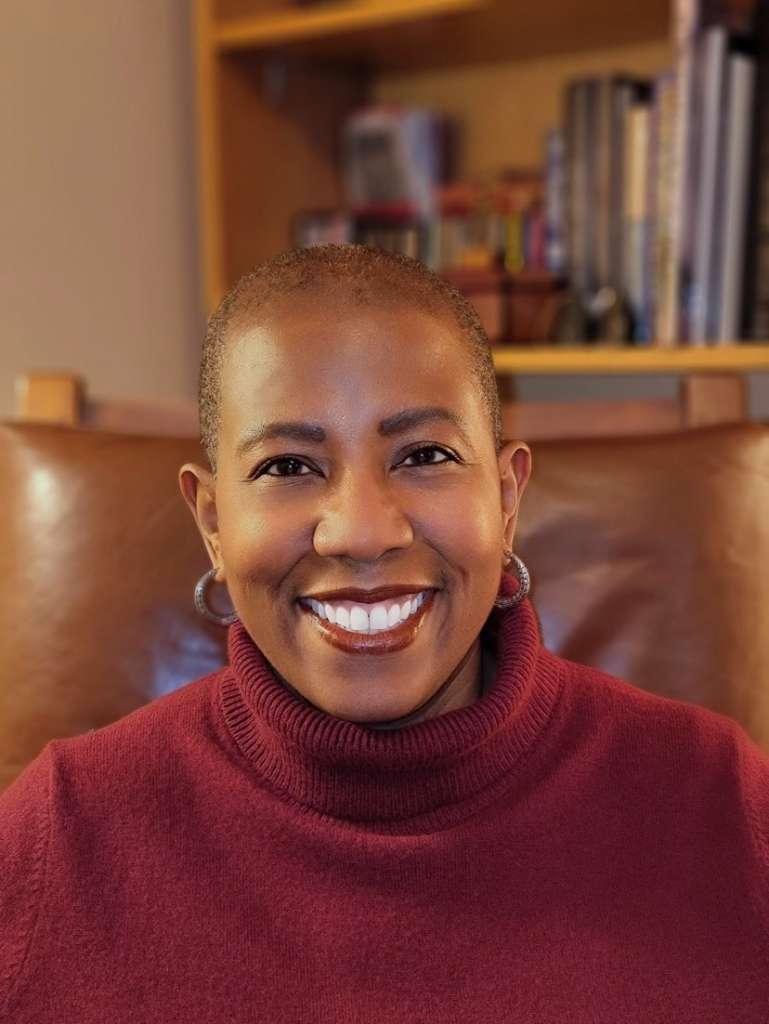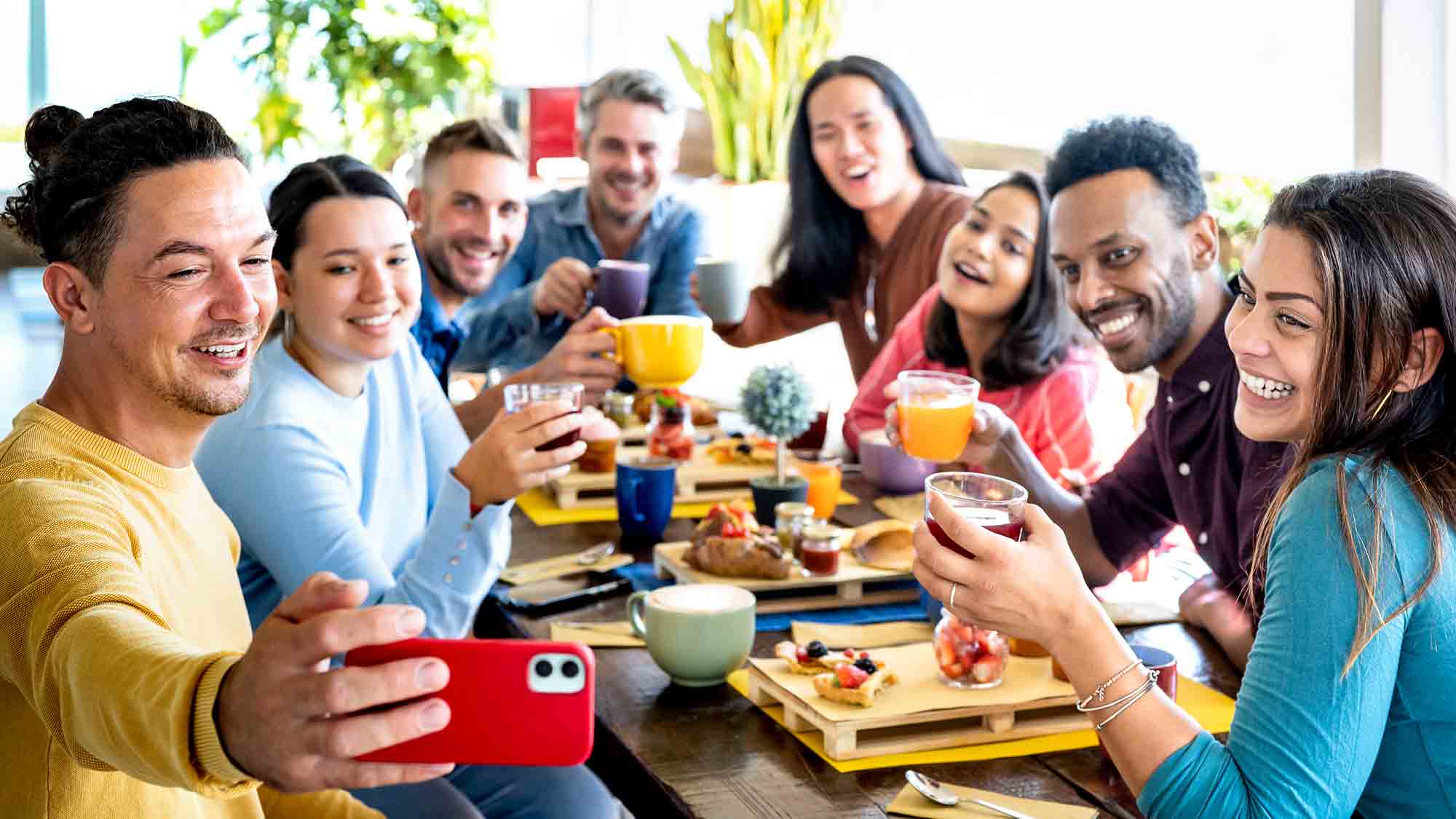Equal Eats & College Dining
Eating at a Meeting Podcast Episode 140
Making dining equal for the food-allergic while traveling and at school
In this final special Food Allergy Awareness Week 2022 episode Tracy chats with Kyle Dine and Karen Palmer.
In the first 30 minutes Tracy and Kyle talk about the what the term “Equal Eats” means to them, how guests with food allergies can set themselves up for dining success, and how together we can influence change in the foodservice system. Karen Palmer, business coach and food allergy mom, joins the show at 30 minutes to talk about the most important thing families can do to prepare their food-allergic children to dine safely in college and a one thing people might not think to consider when considering dining options at college.
 Kyle Dine
Kyle Dine
Kyle Dine and his family love to travel. But dining out while traveling can be hard when he has allergies to peanuts, tree nuts, shellfish, egg, and mustard and his wife has celiac disease. He started his company Equal Eats after having a full-blown anaphylactic reaction in a European restaurant because the tree nut cashew got lost in translation between him and the waiter. Something that can and does easily happen every day.
He is a social entrepreneur who helps people travel safer with dietary restrictions. He is also a food allergy educator, performing allergy awareness assemblies at over 900 schools globally.
What do safe, inclusive & sustainable food and beverage experiences look like to you?
To me it’s not just considering the physical safety implications, but also the mental. It’s considering a guest’s feelings of being included while trying to make it as normal of an experience as possible.
Do you have an example of a situation that negatively effected you and/or other individuals or groups’ food and beverage experience?
Countless, but one conference comes to mind where they asked me to disclose my food allergies, but then had no accommodations in place to cater to me. Why even ask?
What is a best practice you use/or have seen to create safe, sustainable, and inclusive F&B experiences?
Be transparent. Be honest and be open to working with the guest. They are happy to help too!
What can guests do to set themselves up for dining success?
Besides using one of your cards? Well, there’s always that but you know, whether you use a card or not like there’s this is a tool, but essentially you need to communicate and that is that is rule number one. And how you do it is really up to you. But it is important that you’re getting it out there and you’re being clear. And that’s why we put it on card. So it’s a very clear message. But if you’re doing this verbally, it’s laying out what exactly you are allergic to. Try not to muddy the waters with wishy washy language like “I’m kind of this. I’m kind of that.” Just it is say what it is, what it is and get to the point and just get that information out.
And essentially, I think it’s really important to acknowledge that you might be talking with someone that doesn’t have the right info. It might be the 16 year old server that you’re dealing with, and that’s fine. But, trying to get to the right person. Whether you’re telling them, “you might want to let the manager know this or the chef or can I speak to them directly but I have some pretty severe allergies to let you know about it.” And then they can at least flag the process.
How can we influence change in the foodservice system?
Well, one is rewarding places that you know. We’re a very loyal community if a place does well, we go back. But I think also just, you know, to verbally give them that feedback that this this is amazing. And not just tip well, but tell them that you really made a difference for making us feel welcome. Leaving reviews that are very pinpointed to why this was such a great place and why they go above and beyond.
So I think just to give that feedback is important, but also I think for our community, it’s really important that we’re proactive, too, for the places that aren’t so great. And it’s one thing to complain. And I think we all have had eye rolls. We’ve all had bad experiences and you know, it’s it is what it is. But, how can we take that and make it positive is my question. Of how can we proactive and mobilize people to address some of the bigger system issues, whether it’s restaurants not having allergen information available. Restaurants not being trained? And how can we mobilize as an 8% of the population? And actually influence change?
Instead of just going back home and complaining on social media. But we’ve been part of a solution, because maybe they’re just inexperienced overall with finding accommodations, more options. I know, with my wife, we go to places where they have limited options, and especially like they have some gluten free things. But when it comes to pasta, like just to buy some gluten free pasta and have it in house. She always provide some type of, you know, you could very easily make more money by offering this in a very, very accessible way. So providing some options, some ideas without coming down. But working with them can go a long way.
What do you wish people knew about what you do?
That I’m a believer that our community has the power to change a massive foodservice system to become more inclusive and safer for all.
What is your favorite food and your favorite drink?
Salad, pizza, nachos, and beer 🙂
 Karen Palmer
Karen Palmer
Karen Palmer is an executive and leadership coach and the owner of Karen Palmer Coaching. She is also a food allergy mom.
What do safe, sustainable, and inclusive food and beverage experiences look like to you?
Experiences that involve the opportunity for direct communication with food service/restaurant preparers and servers, and supervisors in advance of dining, honesty about what the service environment can do regarding food allergy accommodations, and a welcoming attitude toward food-allergic diners.
Do you have an example of a situation that negatively effected you and/or other individuals or groups’ food and beverage experience?
I can speak generally about some of the challenging experiences my daughter has had in acclimating to dining at college (don’t wish to identify the specific school), including the effect of supply chain issues on available food, cross-contact mistakes, and level of staff comprehension of food allergy safety practices.
What is a best practice you use/or have seen to create safe, sustainable, and inclusive F&B experiences?
Making chefs and dining supervisors routinely available for direct conversation with food-allergic diners, so they can answer specific questions about their menu items and their staff training to serve people with food allergies. Then they can ask questions of their own as well!
What do you wish people knew about what you do?
I wish that everyone knew they can benefit from coaching because very few people have a trained professional they can turn to in creating actionable steps to move toward their personal and/or workplace goals. Family and friends are wonderful, but they often have a stake in the outcome of your choices, which makes it very difficult for them to be impartial in that process.
What is the most important thing families can do to prepare their food-allergic children to dine safely in college?
It’s that that process starts long before you start looking at colleges, right. I mean, in middle school, this is when kids start to have the issue of self carrying their epinephrine auto injectors. And this is also the age where kids are trying to figure out who am I and my friends are more important than my parents, and I don’t really want to do it, my parents are telling me to do. And so they’re all these complicated emotional factors that figure into how do I keep myself safe, as I start to be out in the community by myself hanging with friends, being in places where food is a big part of whatever conversation you’re having.
The biggest thing that I can offer to parents is that you need to start supporting and training your kids to be independent, and safely independent around food, you know, really long before you get to the point of choosing a college. And that means making sure that they know how to carry and use their auto epinephrine auto injectors correctly. That they actually know and start asking the questions. Resist that impulse when you go to the restaurant together, that you talk to the waiter for them. Make them do it because when they get to the point where it’s automatic, they won’t be as likely to forget, but it has to be second nature.
What’s one thing that people might not think to consider when considering dining options at college?
Forewarned is forearmed. If, you know, this is why you want to have two sets of auto injectors with you all the time. Because you know, sometimes the ambulance doesn’t get there quickly. And you need to be prepared. You know, if you need a second dose, you need to be able to go and you know, administer again for yourself. But things like thinking about food outside the cafeteria. College friends want to be able to socialize off campus from time to time, have you checked out restaurants in the area? Have you actually spoken to people who work there, so that you have a degree of comfort, that these are people who would actually understand what my needs might be? Is there a supermarket close to the campus. So again, if all dining options are off, and you just need to grab something quick that you might be able to eat, so you’re not hungry all night?
Links
Connect with Kyle Dine — Website | Facebook | Instagram | LinkedIn
Connect with Karen Palmer — LinkedIn
Check out other featured guests on the Eating at a Meeting podcast.
Eating at a Meeting is part of the Nitty Grits Podcasts network



